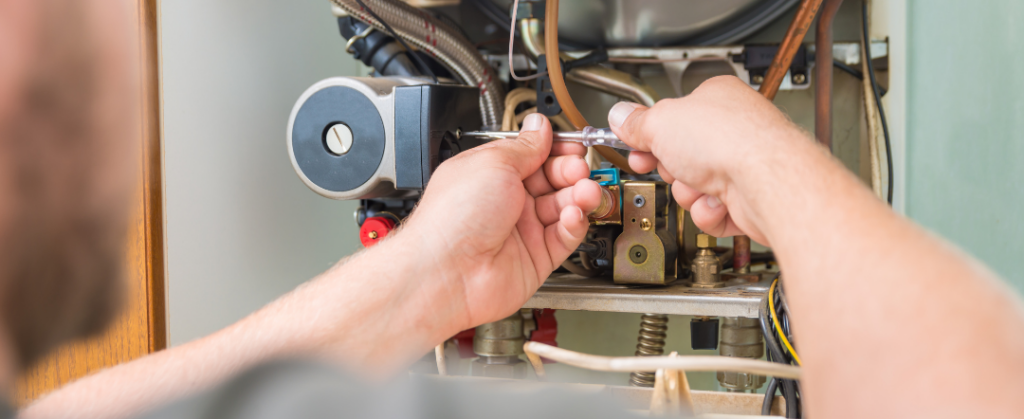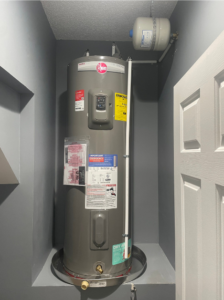One of the essential parts of a furnace is the heat exchanger. If heat exchangers are not maintained, there is a significant chance that they will crack.
One of the essential parts of a furnace is the heat exchanger. If heat exchangers are not maintained, there is a significant chance that they will crack. This post will go over how to identify cracked heat exchangers before they become dangerous.
What Is A Heat Exchanger Function?
The heat exchanger does precisely what its name suggests. It transfers heat from your heater’s energy source to the air in your house. It heats air by circulating it around heated tubes. The heat is then absorbed by the air and brought into your home, making it nice and toasty.
Signs of A Cracked Heat Exchanger:
Contact us right away if you observe any of these warning signs. A cracked heat exchanger can be dangerous.
Carbon Monoxide:
If your CO detector goes off and you have a furnace, you should immediately turn off your heat and seek fresh air. “The most common symptoms of CO poisoning are headache, dizziness, weakness, upset stomach, vomiting, chest pain, and confusion,” according to the CDC. After exiting the home, you should get a technician to come and fix your furnace as soon as possible. Gas water heaters and gas stoves also risk emitting carbon monoxide when unmaintained.Potent Odor:
You should contact us immediately if you smell gas, rotten eggs, or formaldehyde. Strong smells are indicators of either incomplete combustion or a gas leak.Visible Corrosion or Cracks:
If you see any obvious cracks, severe rust, or signs of damage when inspecting your heat exchanger, you should get in touch with a specialist right away.Weird Noise When You Turn on the Heat:
When you switch on your heater, if you hear strange noises from your furnace, such as rattling or banging, it could indicate a problem with your heat exchanger.Appearance of Your Furnace’s Flames:
If the flames in your furnace are flickering yellow or orange rather than being a constant blue, there might be something wrong with the exchanger.Soot Build-Up:
An unusually high level of soot may result from a cracked heat exchanger.Prevention:
By taking these precautions, you can identify a cracked heat exchanger before it causes issues.
Keep Your Heater Regularly Maintained:
The best approach to identify any problems with your heating system is to have it inspected annually. Raleigh Heating and Air recommends that your HVAC system be serviced twice a year, once during the fall or winter for your heating system and once in the spring and summer for your air conditioning system. Our Comfort Club Maintenance Plan includes both a cooling and a heating maintenance check, priority scheduling, 15% off on repairs and select IAQ products, and more.
Check and Install CO Detectors:
Place your CO detectors close to your sleeping quarters. Since carbon monoxide has no smell, these devices provide an extra layer of security by alerting you when carbon monoxide is present.Cracked heat exchangers can become very dangerous when not dealt with right away. They are hazardous, particularly in the fall and winter, when we move indoors and have our heating systems running 24/7. So contact us if you notice any of these symptoms. And if you haven’t already, make an appointment for your yearly heating maintenance so you can sleep soundly, knowing your heating system is prepared for whatever winter has in store.
If you found this post helpful, check out our other blog posts, subscribe to our YouTube channel, and follow us on social media for more HVAC and plumbing tips, information, and fun!
Air Experts is always here for your Heating, Cooling, Indoor Air Quality, Plumbing, and Water Treatment needs. Our award-winning customer service team is available 24/7, or you can easily book an appointment online.








